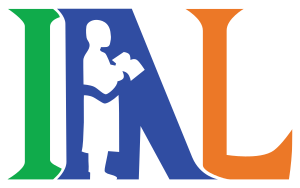
|

|
IAL Course Offerings
The following courses in applied linguistics are offered as part of the normal IAL curriculum:
Research Methods and Programme Planning
Practical Work: Research and write a Background Study on your people (in Urdu or English)
Phonetics and Phonology
A practical method for analysing the sounds and sound systems of languages.
Practical Work: Phonological Summary (in Urdu or English with mother-tongue data)
Sociolinguistics
An introduction to the relationship between society and language.
Practical Work: Research and type up a sociolinguistic study (in Urdu or English)Introduction to Linguistic Computing
An overview of computer hardware and software, including text entry and editing.
Practical Work: Type up Background Study (in Urdu or English)
Literacy Methods
An overview of different teaching methods and sociolinguistic issues in literacy.
Practical Work: Collect and type up some traditional stories (in Mother Tongue); Plan out a teacher training workshop and/or a writer's workshop (in Urdu or English)
Literacy Materials Production
A practical guide for the preparation and production of relevant literature.
Practical Work: List existing and desired mother-tongue literature (in Urdu or English); Type, format and print a literacy booklet (primer, story, etc.) (in mother-tongue)
Vernacular Media Planning Production
A practical guide for planning and producing non-print media and publishing print media.
Practical Work: Produce a newsletter or booklet & a chosen type of non-print media (game, poster, audio cassette, drama, song, etc.)
Anthropology
A pattern for collecting and recording cultural data.
Practical Work: Research and produce an anthropological study of one aspect of your ethnic group - such as marriage customs (in Urdu or English, with Key Terms and transcriptions in Mother Tongue)
Morphology and Lexicography
A systematic methodology for building a bilingual dictionary in a computer database.
Practical Work: Build a 500-word bilingual dictionary in a computer database 1. using texts already collected or 2. focusing on a particular theme (Mother-tongue and one or more other relevant languages)
Sentence-level Grammar
A method for analyzing and recording the grammatical patterns in languages.
Practical Work: Produce a grammatical analysis based on mother-tongue texts already collected (in Urdu or English)
Discourse Grammar
An exploration of various issues involved in the analysis of a text.
Practical Work: Produce a discourse analysis of mother-tongue texts already collected (in Urdu or English)
Semantics
An analysis of the meaning of words and of the way people communicate with one another.
Practical Work: Produce a semantic analysis of mother-tongue texts of different types (in Urdu or English)
Translation Principles
A study of the problems involved in translation and a guide to possible solutions.
Practical Work: Produce a mother-tongue booklet by translating a health booklet, stories or other material. (translating from any language into mother-tongue)
Advanced Workshops
Advanced workshops are occasionally offered in linguistics, literacy and programme management.
Check the schedule for availability.
IAL Diploma Programs
IAL provides four diploma programs:
Diploma in Translation
Necessary
Research Methods and Programme PlanningPhonology
Sociolinguistics
Anthropology
Computer
Morphology and Lexicography
Syntax Grammar
Discourse Analysis
Semantics
Translation Principles
Highly recommended
Vernacular MediaNot necessary
Literacy MethodsLiteracy Materials Production
Diploma in Linguistic Analysis
Necessary
Research Methods and Programme PlanningPhonology
Sociolinguistics
Computer
Morphology and Lexicography
Syntax Grammar
Discourse Analysis
Semantics
Highly recommended
AnthropologyVernacular Media
Translation Principles
Not necessary
Literacy MethodsLiteracy Materials Production
Diploma in Literacy
Necessary
Research Methods and Programme PlanningPhonology
Sociolinguistics
Computer
Literacy Methods
Literacy Materials Production
Translation Principles
Highly recommended
AnthropologyVernacular Media
Not necessary
Morphology and LexicographySyntax Grammar
Discourse Analysis
Semantics
Diploma in Language Development Work
Necessary
Research Methods and Programme PlanningPhonology
Sociolinguistics
Anthropology
Computer
Literacy Methods
Vernacular Media
Morphology and Lexicography
Syntax Grammar
Discourse Analysis
Semantics
Translation Principles
IAL Timetable for Each Module
Arrive Sunday.
Hand in Practical Work from previous Module
Copy electronic file onto the IAL computer
Print 3 copies, one for the teacher, and two for the IAL archives.
2-Week Schedule:
Monday: Oral presentations of practical work from previous course
Monday afternoon to Friday: Course
Saturday: Outing
Sunday: Rest
Monday morning to Saturday lunch: CourseDeparture is after lunch on Saturday.
On the last Friday or Saturday of the course, the teacher will present the plan for research for this course, giving time to discuss what is expected and to look at examples from previous students.
At the end of each course, there will be a review and debriefing session. Students will fill out anonymously an evaluation sheet.
Daily timetable
9:00 am - 10:30 am Class session
11:00 am - 1:00 pm Class session
3:00 pm - 5:30 pm Lab work
5:30 pm - Homework and read notes
Fun night, etc.
During one of the class sessions, you can also plan a review of material covered the previous day.
Have students ask questions and discuss the material (i.e. daily notes & homework)
Coaching / Mentoring Sessions
One 2-day coaching session will be scheduled from Wed to Fri during week 6 of the course.
This is an informal time to help students solve problems, answer questions, give guidance, review their work, etc.
A mentoring session will be held sometime before the coaching session by the trainees, mentor or supervisor in their home area.
The mentors / supervisors will forward notes from the mentoring session to the IAL office.
These notes will be given to the coach for that course who will use them to prepare for the coaching session.